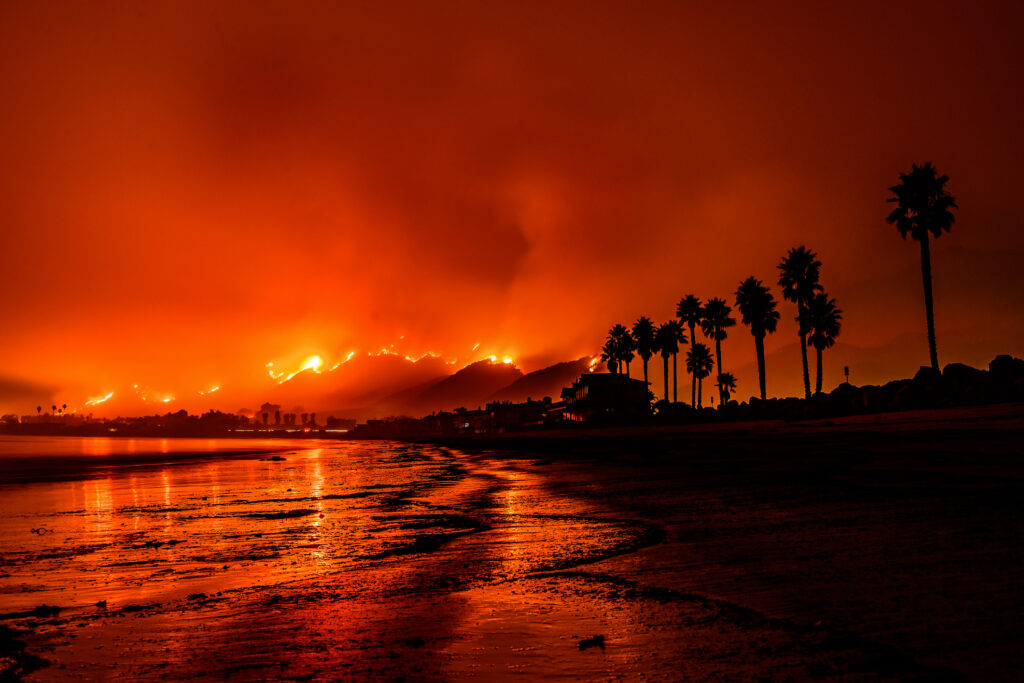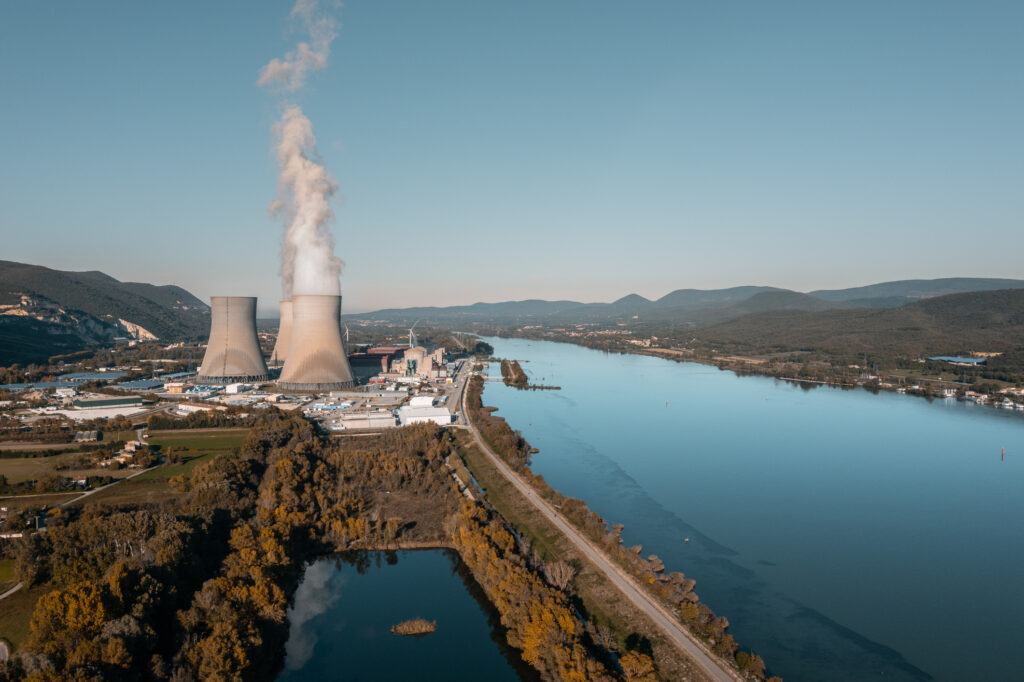Climate Change Weekly #153
Pope Francis evidently has decided to make fighting global warming an important papal cause in 2015. He praised the United Nations’ climate treaty efforts in Lima, Peru; the Vatican has indicated he will issue an encyclical letter to the world’s bishops; he is encouraging the world’s 1.2 billion Catholics to take up the battle against climate change; and he’s planning to address the next UN climate conference in Paris to pressure world leaders to adopt a strong climate agreement.
The Vatican Pontifical Academy of Sciences may be behind the pope’s rising interest in global warming as a moral and political cause. Its chancellor, Bishop Marcelo Sorondo, said, “Our academics supported the pope’s initiative to influence next year’s crucial decisions. The idea is to convene a meeting with leaders of the main religions to make all people aware of the state of our climate and the tragedy of social exclusion.”
Many Catholics undoubtedly support the pope’s efforts and, unlike many of his critics, I would argue the views of the pope, a significant moral leader, should be considered as climate policies are shaped. As the leader of the largest Christian denomination in the world, he is charged not just with saving souls but also with alleviating the suffering of the world’s least fortunate, and with leading the Catholic Church in efforts to make the world a better place.
Having said this, I also know moral imperatives and public policies should be grounded in the best-available science, in the reality of the human condition, and in the state of both the planet and the people. Concerning global warming, the pope evidently has been badly misinformed and led astray.
None of the disasters asserted by climate alarmists to result from global warming has come to pass. Hurricane numbers are down, deaths from natural disasters have declined, sea ice is on the rise, and crop production is increasing. Climate models have yet to be validated, missing the lull in temperature rise for the past 18 years and the declining rates of sea-level rise for the past decade. Instead, the gap between temperatures projected by climate models and temperature observed in reality grows yearly.
Investor’s Business Daily has speculated the Vatican is itching to tackle climate change, despite the above-stated facts, because,
[The] Vatican … has been infiltrated by followers of a radical green movement that is, at its core, anti-Christian, anti-people, anti-poor and anti-development. The basic tenets of Catholicism – the sanctity of human life and the value of all souls – are detested by the modern pagan environmentalists who worship the created, but not the creator. … Big Green believes that too many human beings are the basic global problem. People, according to this view, are resource destroyers. Climate change, they say, is due to the overpopulation of Mother Earth.
The pope would do well to question the sources of his information and to recognize his efforts should be focused on alleviating the poverty and suffering of billions of people in the world today. The best policy to accomplish that goal would be alleviating energy poverty worldwide.
As a CNS editorial stated,
Alex Epstein argues, rather than taking a safe climate and making it dangerous through the use of fossil fuels, we have been transforming a dangerous climate into a safer, more manageable one for human flourishing.
Humans have long fought a war with climate, and to the extent we’ve won it has been through the use of technology, most recently including, fossil fuels.
— H. Sterling Burnett
SOURCES: The New Republic; Investor’s Business Daily; Christian Today; CNS News
IN THIS ISSUE …
NASA study: Tropics absorbing CO2 fast … 2014’s futile climate fight … People won’t pay much to fight global warming … People adapting to warming … International survey of temperature health effects … Quantifying differences between climate and climate models
NASA STUDY: TROPICS ABSORBING CO2 FAST
A study led by NASA scientists discovered tropical forests are growing faster than researchers thought due to rising levels of atmospheric carbon dioxide. The study, published in the Proceedings of the National Academy of Sciences, found tropical forests absorb 1.5 billion tons of CO2 annually. As more CO2 is added to the atmosphere, forests worldwide are growing faster. The study’s lead author, David Schimel, said, “This is good news, because uptake in boreal forests is already slowing, while tropical forests may continue to take up carbon for many years.” The researchers argue, since rainforests absorb more than half of CO2 taken up by plants worldwide, governments and industry need to prevent tropical deforestation to reduce the climate threat from human CO2 emissions.
SOURCE: Daily Mail
2014’S FUTILE CLIMATE FIGHT
2014 was a year filled with frustrating irony and futility for global warming alarmists, points out Steve Goreham, executive director of the Climate Science Coalition of America. As record-breaking cold beset the US during the fall of 2013 and winter 2014, on January 8, White House Chief Science Advisor John Holdren warned “… the kind of extreme cold being experienced by much of the United States … is a pattern that we can expect to see with increasing frequency as global warming continues.” And despite UN warnings of widespread crop failures due to warming, all three major cereal crops saw record yields in 2014: rice increased 1.1 percent, wheat 11.2 percent, and corn 14 percent over 2013. While the Obama administration’s Environmental Protection Agency proposed restrictions on CO2 emissions that would prematurely shutter many existing coal-fired power plants in the United States, more than 1,200 new coal-fired plants are planned across the world. In perhaps a final irony, despite rising CO2 levels, as of October the pause in global temperature rise reached 18 straight years according to global satellite data.
SOURCE: Providence Journal
PEOPLE WON’T PAY MUCH TO FIGHT GLOBAL WARMING
Many people aren’t worried about global warming, but even those who are won’t pay very much to halt or slow climate change. Stephen Ansolabehere, a government professor at Harvard, conducted a comprehensive international survey of attitudes toward energy and climate over the past 12 years and found people would be willing to add only about $5.00 per month to their energy bills to fight global warming. Ansolabehere concluded, “People are not willing to really put their dollars – even people who say they are concerned about global warming – are not willing to put their dollars where their hearts are.”
SOURCE: Forbes.com
 |
PEOPLE ADAPTING TO WARMING
A new paper in Environmental Health Perspectives demonstrates people, especially the elderly, are adapting to higher temperatures rather than succumbing to heat-related health problems. The researchers decided to put to the test UN’s IPCC predictions that increasing temperatures would have profoundly negative health impacts, especially for the elderly. The research involved using “a national database of daily weather, air pollution, and age-stratified mortality rates for 105 US cities (covering 106 million people) during the summers of 1987–2005.” What they found surprised them: Across the nation, “the number of deaths (per 1,000 deaths) attributable to each 10°F increase in same-day temperature decreased from 51 in 1987 to 19 in 2005” and the decline was largest among those 75 years of age and older, in cities with the coolest climates. The prevalence of central air conditioning was not a factor in the decline. Basically, people were becoming more resilient to heat.
SOURCE: CO2science.org
INTERNATIONAL SURVEY OF TEMPERATURE HEALTH EFFECTS
Climate alarmists are quick to blame greater than normal heat-related deaths on global warming, but multiple analyses out of Asia undermine their claims by demonstrating heat-related deaths are declining, with cold-related deaths being a far greater threat. One study of Shanghai, China found on average every 1 degree increase in temperature reduced mortality by 0.5 percent. A study of China’s subtropical cities found both high and low temperatures were associated with increased mortality, but cold temperatures were linked to many more deaths than warmer temperatures. Studies of Bangladesh, Israel, and Thailand produced similar results, with one study of Israel revealing “between 1976 and 1985 ‘mortality from cardiovascular disease was higher by 50% in mid-winter than in mid-summer, both in men and women and in different age groups.'”
SOURCE: CO2science.org
QUANTIFYING DIFFERENCES BETWEEN CLIMATE AND CLIMATE MODELS
Climate scientist Pat Michaels presented research at the annual meeting of the American Geophysical Union in San Francisco detailing significant differences between model projections of temperature and actual temperature measurements. Michaels and colleague Chip Knappenberger found climate model projections of CO2 sensitivity were 40 percent higher than actual measurements indicate. As a result, observed measurements over four decades show actual temperatures fall below (often significantly below) the estimated range of 95 percent of all climate models simulations.
SOURCE: Cato.org





